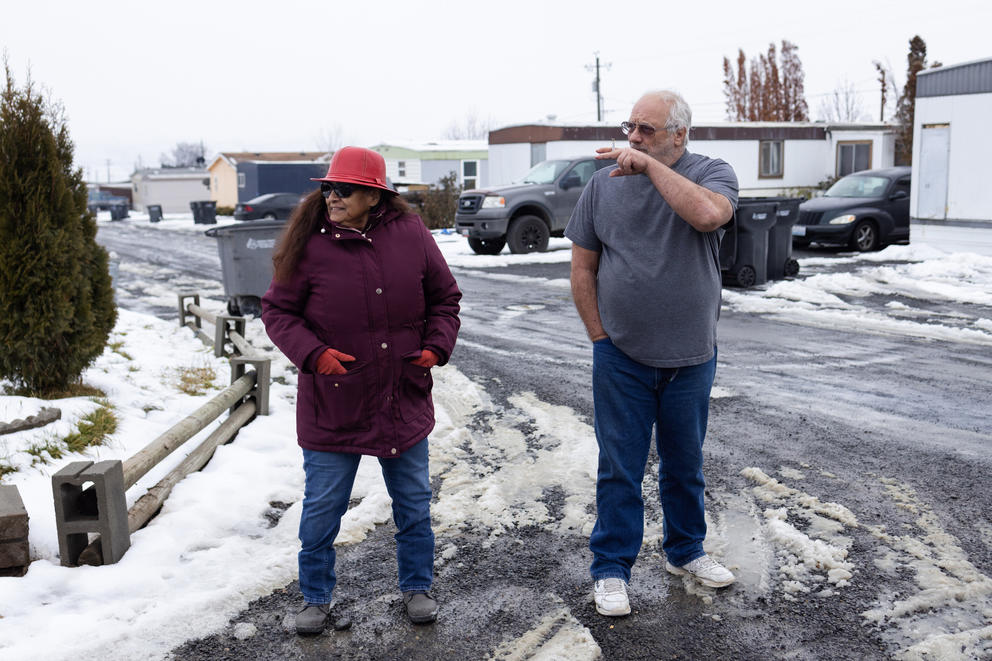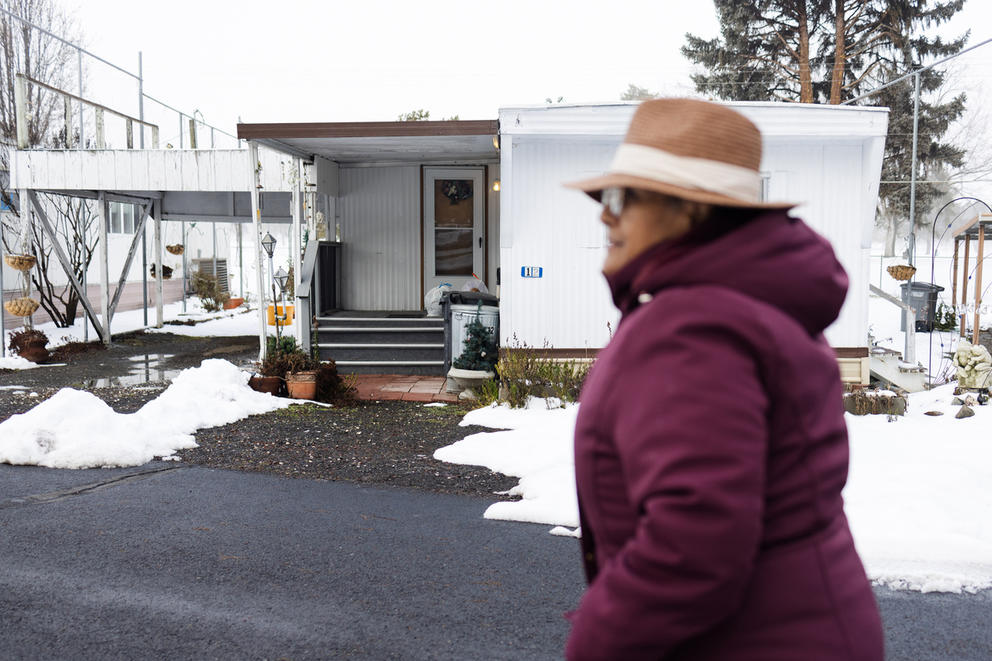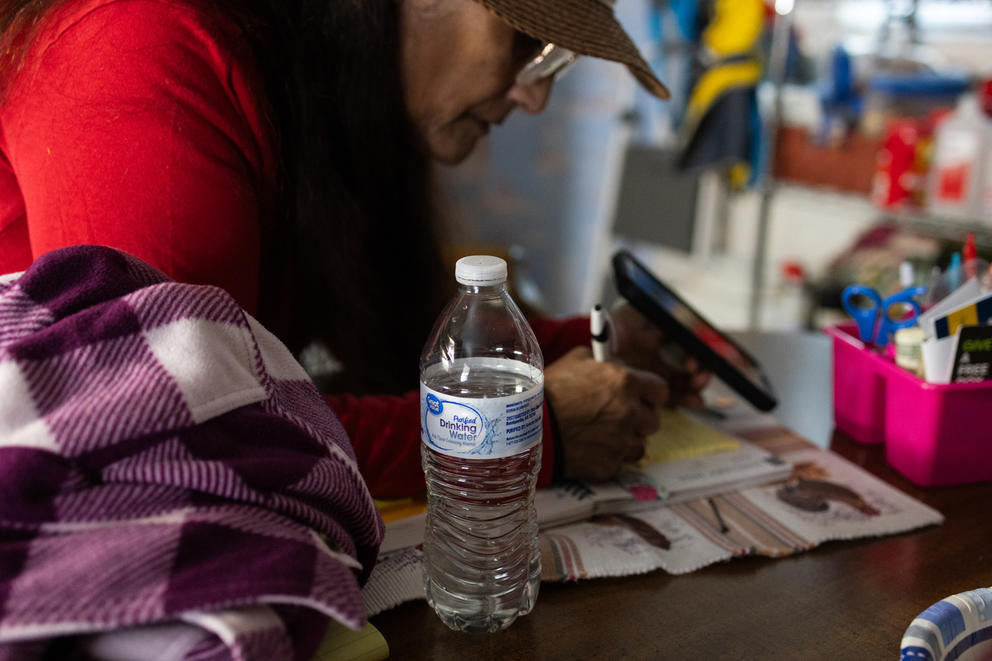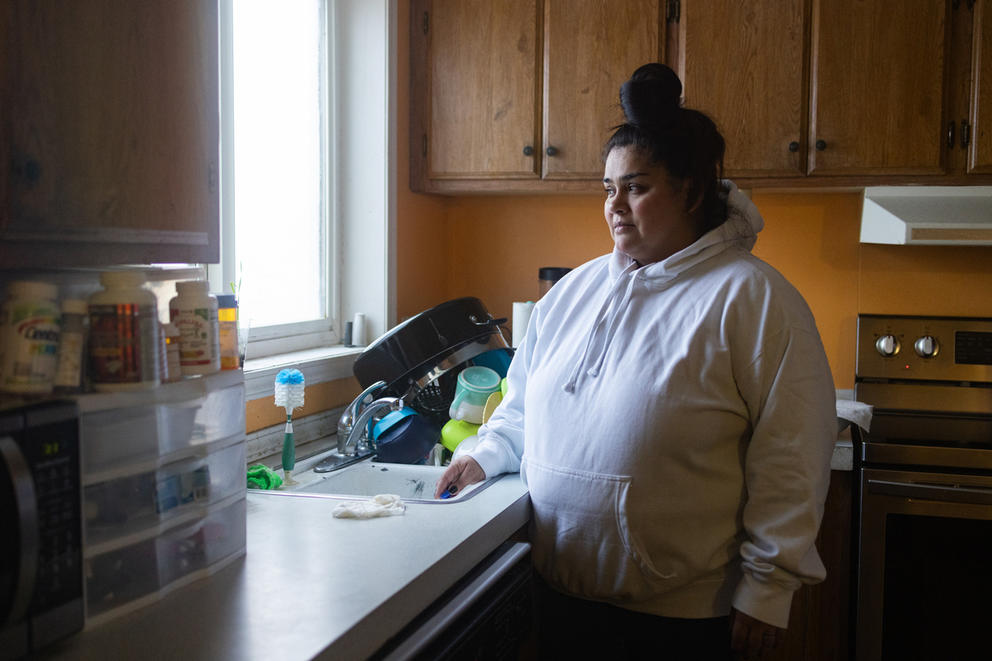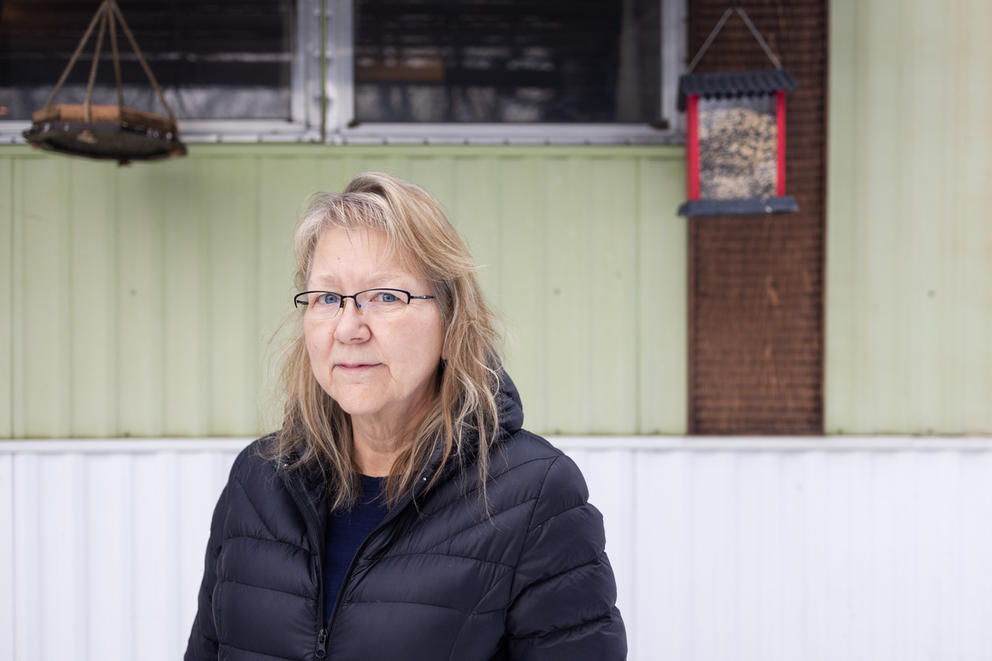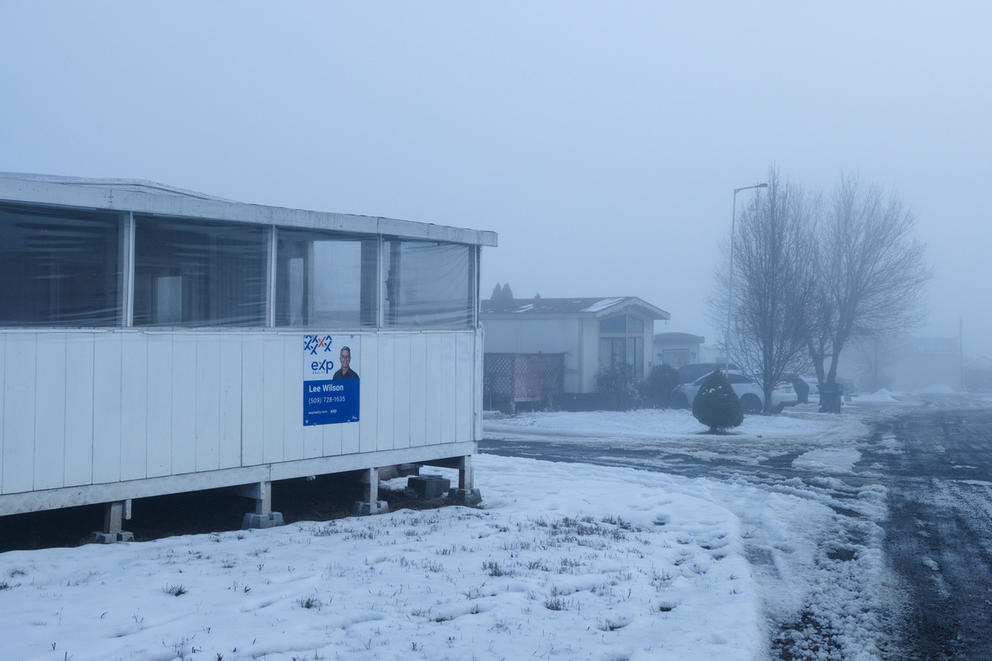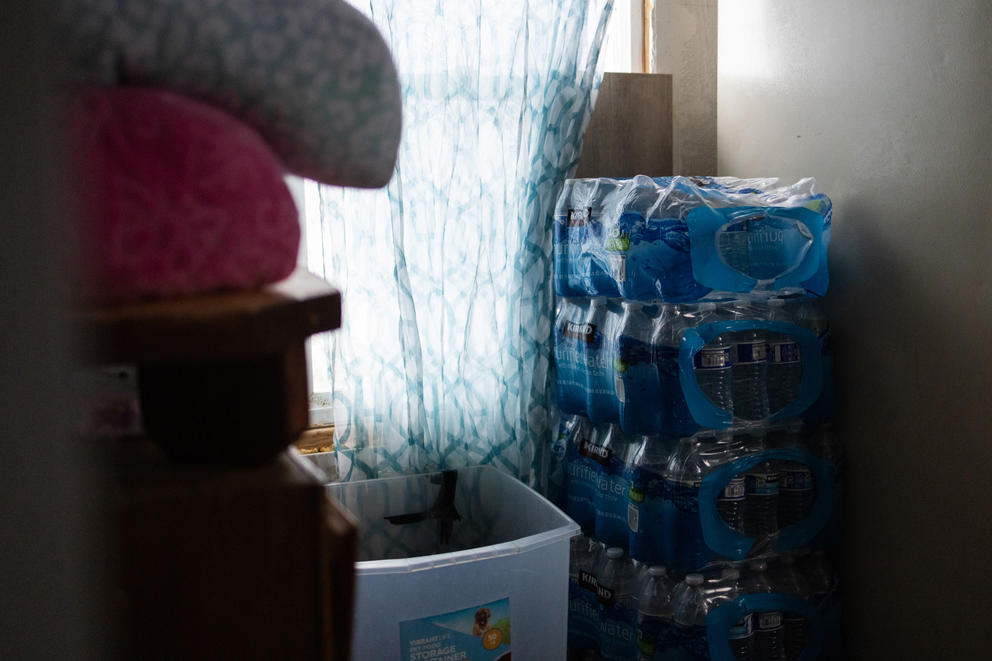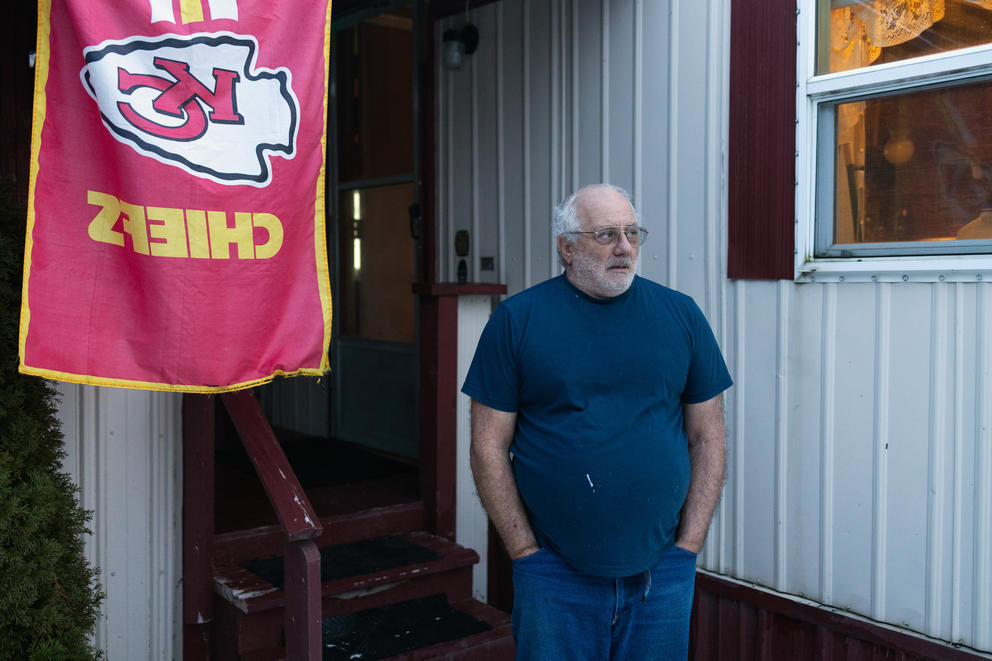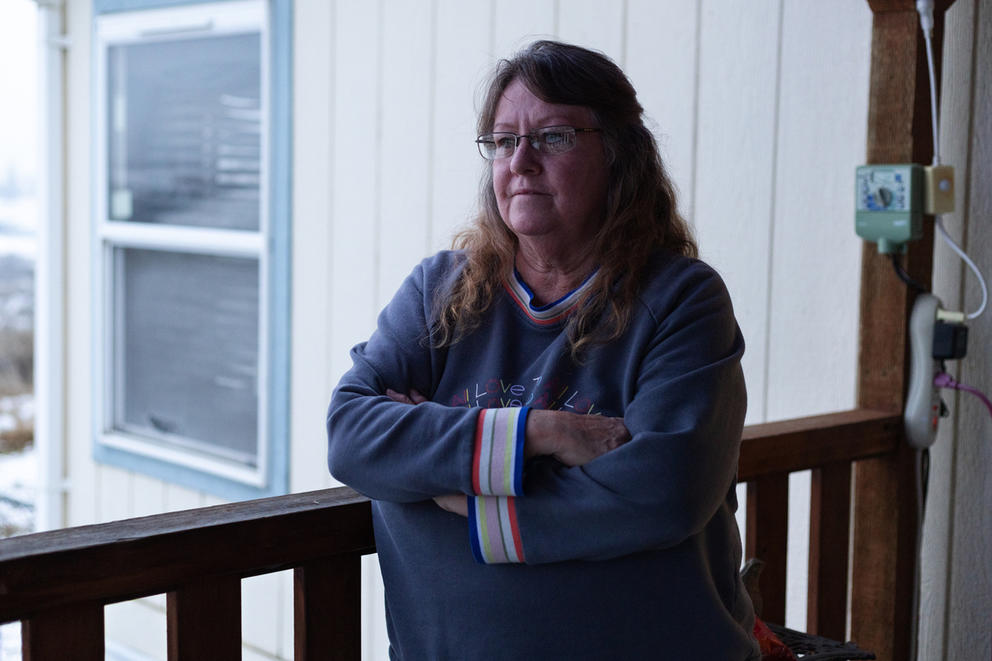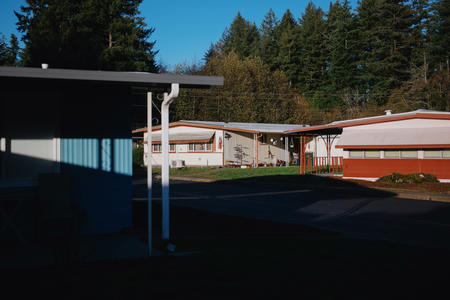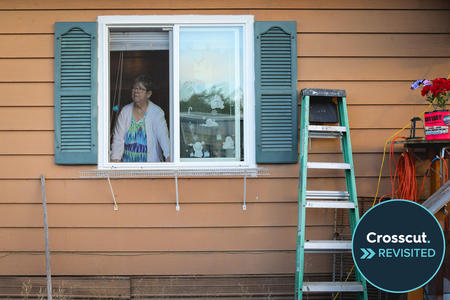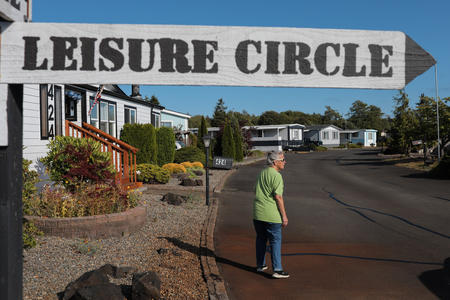“Knowing what I know now – I wouldn’t have moved out here,” said Dennis Quigley, a resident of a Hurst & Son-owned community near Moxee in Yakima County. He told Crosscut his tap water smells awful and can leave a black film on surfaces.
The state attorney general’s office launched an investigation into Hurst & Son last year, calling for rollbacks on rent increases and fees at one community in October while continuing to review practices at other parks. Assistant Attorney General Sebastian Miller announced in a letter last month that investigators had subpoenaed the company to turn over detailed records as the office expands its investigation into new concerns.
Officials expected those records to be turned over to the state’s Manufactured Housing Dispute Resolution Program by the end of January. Miller wrote that the investigation would review not just rent increases, but also alleged transfers of maintenance duties to tenants, reductions in park services and violations of notice of sale requirements.
“Complaints about park maintenance and utility charges are different at each park, so those issues will be addressed separately,” Miller wrote. “The Program will communicate and work directly with the individual complainants and Hurst & Son.”
Hurst & Son Field Manager Levi Black wrote in a statement that the company has worked to reinvest in park infrastructure: “Residents may perceive that the new owner is just raising rents, but the fact is, we are doing what needs to be done to preserve and sustain the community.”
“While our aim is to preserve mobile home parks, Hurst & Son is not a low-income housing provider,” Black added. “At the same time, we want our communities to be mixed income and we don’t want improvements to displace anyone.”
A second E. coli outbreak
Elva Simmons, 72, has spent weeks buying bottled water to cover all of her household needs after receiving warning in early December of a second E. coli outbreak at her Hurst & Son community in less than a year. The Yakima Herald-Republic first reported officials had again placed the Sun Tides Community in Gleed, in Yakima County, on a boil-water notice.
Simmons told Crosscut she’s wary of boiling her water, instead preferring to purchase bottled water for guaranteed safety. She said she worries for her neighbors who are elderly or live with disabilities who may struggle to constantly boil water or venture out to the grocery store.
“I don’t have words for it anymore, they’re just horrible people,” she said of Hurst & Son. “Why do you treat others like this?”
The situation also presents an additional financial strain on tenants already living on fixed incomes and budgeting for Hurst & Son’s latest rent hikes. Simmons told the Yakima Herald she can spend upward of $100 a month to provide just enough bottled water for herself and her pets.
Simmons said she spoke with the attorney general’s office, which assured her Hurst & Son bears responsibility for addressing the water contamination and should “supply us with bottled water.”
Joseph Perkins, who works for the coliform water quality monitoring program at the Department of Health, told Crosscut that officials obtained several water samples from Sun Tides in early December. All four came back positive for coliform bacteria – one specifically tested as E. coli.
Perkins said he visited the park once more with a team of engineers to further inspect the issue and found a minor problem with the well casing. He said he suspects that the park’s septic system, while far away enough to meet all regulatory requirements, is still in close proximity to the well.
“The regulatory requirement, I don’t want to say it’s necessarily an arbitrary number, but it sort of is, right?” he said. “It’s a one-size-fits-all approach to try and provide safety, but there are some things just outside of that we can regulate. So if their ground is maybe perhaps more porous or something than normal, then you might actually need a further distance.”
Elva Simmons speaks with someone at the Yakima County Health District to address the water issues at Moxie Community mobile home park in Moxee. A bottle of water sits next to Simmons, as Sun Tides mobile home community where she lives has dealt with E. coli in the water twice in the past year. (Emree Weaver for Crosscut)
Records obtained by Crosscut show Hurst & Son has fulfilled DOH’s first request of sealing any openings in the wellhead and casing with silicone or caulk. The next, and more significant step, requires Hurst & Son to implement a four-log disinfection system for Sun Tides.
Hurst & Son already has a design for the system as a result of the previous E. coli outbreak. DOH engineer Andy Cervantes said he anticipates that work could be completed by mid-February.
Brionna Aho, a spokeswoman for the attorney general’s office, told Crosscut in an email that the office has received complaints from both Sun Tides and nearby Moxie Community, whose tenants described smelly and dirty water, water leaks and issues with the septic system.
“[W]ater at both parks comes from wells operated by H&S,” Aho wrote. “Our team has plans to meet with park residents along with a DOH inspector in the coming weeks.”
Cervantes and Simmons confirmed that Miller from the attorney general’s office had visited the area last week. Miller showed up at Simmons’ door, she said, chatting with her and a neighbor. When Simmons criticized Hurst & Son for failing to provide tenants with clean water, she said Miller “just kind of shook his head.”
“He didn’t have much to say,” Simmons added.
Water and sewage complaints
On the outskirts of Washington’s sprawling hop fields sits Moxie Community, an all-ages mobile home park purchased in 2009 by Hurst & Son. Tenants told the Yakima Herald-Republic in early January about recurring problems with the park’s septic system, leading to sewage overflow on park grounds.
In an interview with Crosscut, Quigley said the park’s septic system has had problems ever since he moved there five years ago. Quigley lives about 150 feet away from one of the pipes that overflowed, and said the stench has been unbearable – especially during the warmer months.
Moxie’s residents say the water is discolored with a strong sulfuric smell, with Quigley saying that it will often leave a black film in his toilet bowl.
“I wish my water was good – I wish they would do something to make sure it was good,” he said. “I’ve got a water jug in my refrigerator that I keep there, because you can never trust when the water is going to be shut off. Then, after about a week I have to take that one out, empty it, wash it, because there’s a brown film that grows in the bottom of it.”
Cervantes told Crosscut the water quality is not a high public health risk, describing it as a matter of aesthetics. Any problems with the water supply can be attributed to high levels of iron and manganese, which technically have not exceeded any maximum contaminant levels.
Despite his disgust, Quigley has no choice but to continue using the water at the park. He lives on a fixed income of $10,000 a year – most of which goes toward his rent, leaving him unable to purchase mass quantities of bottled water. Quigley’s latest lease will cost him $650 a month, about a 60% increase from what he was paying upon moving into the community.
Quigley said he recently spoke to Miller from the attorney general’s office, and has faith the investigation will elicit real change – but “the wheels of justice turn real real slow.”
Patricia Woelk in front of her home at Sun Tides mobile home community in Gleed, Wash., where she has lived for 12 years. Woelk said the community didn’t have the problems it does now prior to the current management. Her complaints have been largely about safety and the lack of lighting and security throughout the community. (Emree Weaver for Crosscut)
Bea Sauve in front of her Moxie Community home, which she has owned since 2000, though she sold it twice and moved back in five years ago. Sauve said she is paying almost $700 per month for the lot, despite having paid off her home. “They keep raising rents and I’m wondering what for?” Sauve is retired, but said she had to go back to work to afford the increase in rent. (Emree Weaver for Crosscut)
Another tenant, Brian Race, told Crosscut he must use the park’s water to shower, but refuses to use it for consumption, instead relying on a filtration system and bottled water.
“We pay all this rent, and they’ll shut the water off and they won’t even tell us — sometimes they will,” Race said. “Especially these last managers that we've had – they’ve just been really bad, we'll go a day without water with no knowledge or anything.”
Race told Crosscut that Hurst & Son has not provided tenants with an annual water report in two years.
Crosscut filed a records request with the Yakima Health District to access any documents associated with the sewage incident. The agency responded that there was no written inspection report.
Victoria Reyes, administrative assistant for the Yakima Health District, wrote in an email that the agency was first contacted on Dec. 19 and sent out for a site inspection later that afternoon.
“During the site inspection, no surfacing sewage was seen in the mobile court, or a strong odor detected. One resident stated that a sewage pipe had broken, but the owner had repaired the broken pipe,” the email statement read. “No sewage was observed around the area of the broken pipe. Sewage could have backed up into the homes due to a blockage in the plumbing or sewage pipe. A septic tank that is full of solids and in need of pumping can cause a backup into a home.”
The email went on to say that a resident stated the septic tanks were pumped recently, which rid them of the sewage backing into their home, prompting the Yakima Health District to close the case.
Simmons, now an advocate with the Association of Manufactured Homeowners, said she visited Moxee as part of her tenant organizing efforts at around the same time health officials received the reports of backed-up sewage.
“It was horrid,” she said. “I cannot believe that a mess was left like that out there. When there’s children that walk through that park, even people have their pets that are walking around in there – and there’s that mess. It was disgusting.”
Simmons said she has arranged a visit to Moxie with Cervantes in an effort to prove to him the true gravity of Moxie’s water situation. She jokingly referenced a scene from Erin Brockovich, saying she might offer him a glass of the park’s water to drink.
Sewer repair concerns outside Spokane
Badger Lakes Estates, south of Cheney in Spokane County, touts itself as a resort-style community – an affordable option for families to plan their summer getaways and enjoy scenic lake views. Resident Michael Rohlf reached out to Crosscut last fall over sewer repair work that allegedly exposed him and his neighbors to raw sewage.
Rohlf said the project spilled sewage less than 200 feet from the lake and close to the park’s well water.
“I mean – it was an open ditch full of sewage,” added Scott Schluter, another Badger Lakes tenant. In photos provided to Crosscut, the ditch looks about 3 feet deep, lining a row of houses in the community.
“It’s just running down through the ditch that they had to open up to replace that pipe,” Schluter continued. “To me, it looked like there was only one section that was broken, and they decided to start replacing the whole thing.”
The project has long been completed, but Rohlf said it raised concerns among tenants about Hurst & Son’s health and environment practices as well as whether such work should require additional inspection or permitting oversight.
“They’re not conforming with anything in a proper manner, and then in doing so – they’re also ruining wetland areas and exposing dangerous toxins to these lakes and sewage and things like that,” Rohlf said. “Just willy-nilly ripping up stuff without any codes. They haven’t pulled any permits.”
Spokane County’s Permit Portal shows that Hurst & Son applied for four permits for Badger Lake Estates since 2018, the most recent one issued in August 2023. One permit was later issued a stop-work order by the county.
Black told Crosscut that permitting requirements for water and septic maintenance can vary from park to park. He said some Hurst & Son communities use shared systems that require permits for significant changes, while others, like Badger Lakes, involve privately owned infrastructure that, Black said, can undergo repair work without a new permit.
In his statement, Black contended that many Hurst & Son-owned communities in Washington have expiring infrastructure, and “It’s common for jurisdictions to mandate sewer updates, as an example, to meet EPA and code requirements.”
“This can mean new septic tanks or connecting the sewer to the main line. Sometimes an original owner decides to sell a community because they don’t have the capital to make the necessary improvements,” he wrote. “That’s where we come in, to update the infrastructure systems and keep the community operating.”
Aho confirmed that attorney general’s office staff continue to review the public health complaints at communities in Eastern Washington.
“The complaints are still open,” she wrote, “and part of our investigation.”
Correction: A previous version of this story included the wrong month the AG's office called for rent rollbacks due to an editor error.

